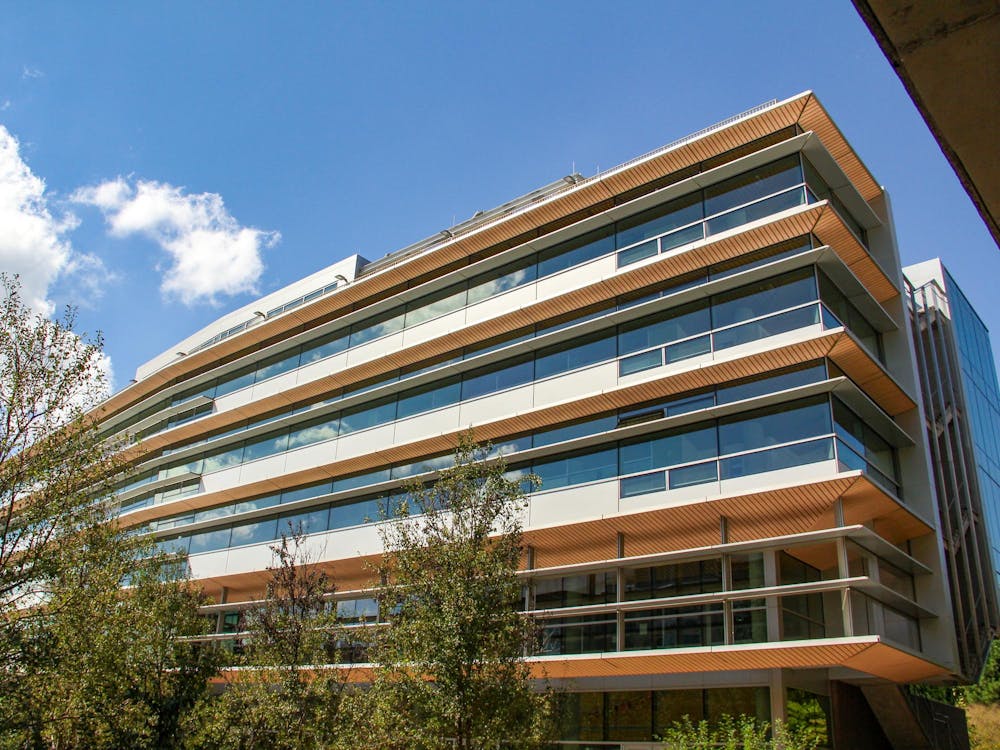Duke climate experts and scholars recently attended Climate Week NYC, where they participated in various discussions surrounding climate change mitigation and adaptation strategies.
The event, which took place between Sept. 22 and Sept. 29, is “the biggest annual climate event of its kind,” according to its primary organizer, Climate Group. The week featured over 600 events across New York City and engaged hundreds of leaders in business, government and academia, as well as members of the general public.
“[Climate change] does touch every part of our lives,” said Elizabeth Losos, adjunct professor at the Nicholas School of the Environment and executive in residence at the Nicholas Institute for Energy, Environment and Sustainability. “If you’re interested in doing something and you have some passion or some skills or interest, you can almost surely find an entry point that is both meaningful but also needed.”
Losos explained that discussion topics ranged from nature conservation to climate resilience and building adaptation, both in the U.S. and on an international scale.
A number of Duke’s attendees, including Losos and Alix Zwane, Newhouse visiting professor of the practice in the Sanford School of Public Policy and executive in residence at the Nicholas Institute, spoke at panels, including one titled “Scaling Debt-for-Nature Swaps to Tackle Debt, Climate and Biodiversity” and another on behalf of the Nicholas School’s Energy Transition Lab titled, “How Can Energy Transitions Balance Growth, Decarbonization and Human Development?”
In addition to hosting panels and organizing public discussions across the city, Duke’s attendees “facilitat[ed] closed-door conversations and networking with decision-makers and with current and potential external partners.”
“[Affiliates of] the Duke Climate Commitment participated last year, and they found this to be a really valuable place for Duke to engage,” Losos said. “So they reached out to those individuals who had been active in the climate space to ask if there were any activities that they were interested in doing during climate weekend.”
Losos attended several events, including a talk hosted by Maggie Baird, mother of Grammy-winning singer-songwriters Billie Eilish and Finneas O’Connell, surrounding her sustainable food charity organization, Support and Feed. She also sat in on a pre-movie screening about an Ecuadorian indigenous group’s work to “protect the integrity of their community and their surroundings.”
Losos enjoyed the wide variety of topics covered by the programming but noted that it was a bit “uncoordinated,” as events were scattered across the city.
Zwane emphasized that having a wide array of stakeholders present at the talks allowed participants to work toward solutions to problems on a “shared agenda.”
She used the goal of global net-zero carbon emissions as an example, explaining that disparities in different countries’ level of economic development mean that countries with more resources at their disposal will have to reduce their emissions at a faster rate to meet average global targets.
“That can feel pretty daunting to imagine that you're going to achieve those kinds of goals,” Zwane said. “… On the other hand, I think there's some optimism because of technological breakthroughs that have happened or that seem very much on the cusp of happening … It's really in our grasp.”
Get The Chronicle straight to your inbox
Sign up for our weekly newsletter. Cancel at any time.
Ella Moore is a Trinity first-year and a staff reporter for the news department.

